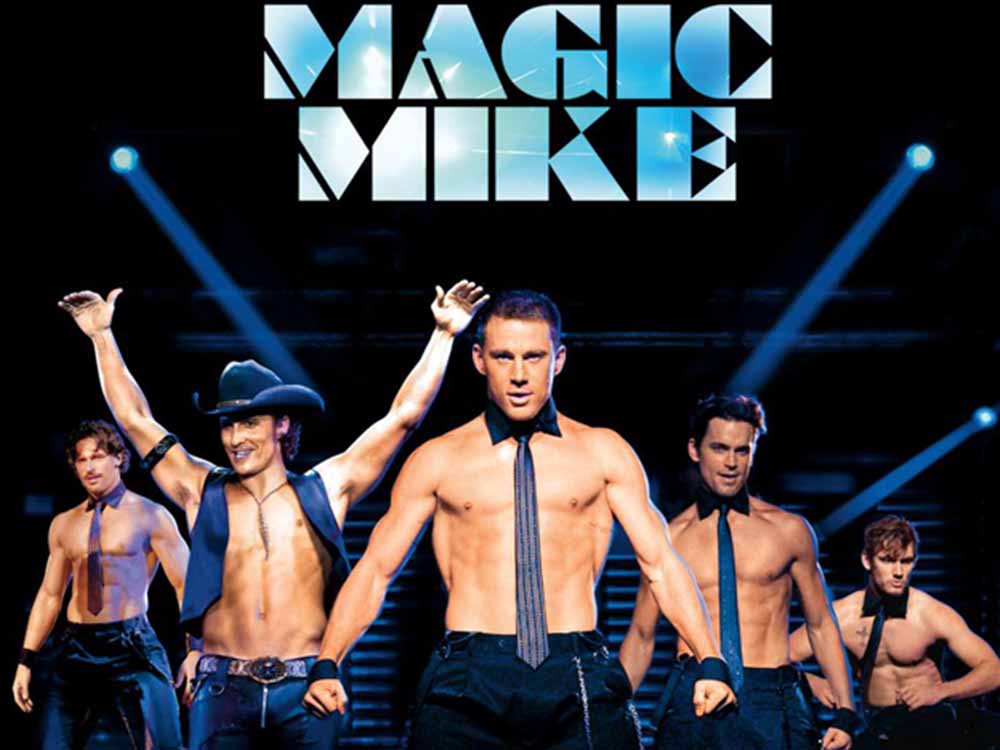A Sultry Tale of Seduction and Ambition
“Magic Mike” (2012), directed by Steven Soderbergh, offers a tantalizing glimpse into the world of male stripping and the complexities that come with it. This film, featuring Channing Tatum in the titular role, is a surprising blend of steamy entertainment and thought-provoking drama. As we delve into the details, we’ll explore the film’s narrative, character dynamics, and the cultural impact it had on both the entertainment industry and societal perceptions of male dancers.
Plot Synopsis
“Magic Mike” revolves around the life of Mike Lane (Channing Tatum), a construction worker with dreams of a more prosperous future. By night, he transforms into “Magic Mike,” the star performer at Xquisite Strip Club, where he and a group of male dancers entertain enthusiastic crowds. Mike’s life takes an unexpected turn when he befriends Adam (Alex Pettyfer), a young and inexperienced drifter.
As Adam is introduced to the world of male stripping, he becomes entangled in the allure of quick money, glamorous lifestyles, and the attention of women. Meanwhile, Mike grapples with his aspirations beyond the strip club, including his dream of starting his own custom furniture business. The film explores themes of ambition, friendship, and the consequences of living on the edge of fantasy and reality.
The narrative takes an introspective turn as Mike confronts the challenges of his chosen profession and questions whether the glittering world of entertainment is a sustainable path to personal fulfillment.
Characters and Complexities
At the heart of “Magic Mike” is the character of Mike Lane, portrayed with charisma and depth by Channing Tatum. Mike is not merely a stripper; he’s a man with dreams and aspirations, using the stage as a means to an end. Tatum’s performance adds layers to Mike’s character, portraying him as both a seductive entertainer and a person seeking validation and purpose.
Alex Pettyfer’s Adam serves as the audience’s entry point into the world of male stripping. His journey, from a naive newcomer to a participant in the wild lifestyle, reflects the allure and pitfalls of the entertainment industry. The dynamic between Mike and Adam becomes central to the film, as mentorship evolves into a complex relationship.
The supporting cast, including Matthew McConaughey as the flamboyant club owner Dallas and Cody Horn as Adam’s sister Brooke, adds depth to the story. Dallas’s larger-than-life personality and Brooke’s skepticism provide contrasting perspectives on the world of male entertainment.
Visual Allure and Choreography
“Magic Mike” is a visual feast, featuring electrifying dance routines and steamy performances that captivate the audience. The choreography, led by Alison Faulk, is a highlight of the film, showcasing the athleticism, charisma, and sensual artistry of the male dancers. The scenes on stage are meticulously crafted to convey both the excitement of the performances and the intimate connection between the performers and their audience.
The film’s cinematography by Steven Soderbergh captures the vibrant atmosphere of the strip club, utilizing dynamic camera angles and lighting to enhance the sensuality of the performances. The combination of visual flair and evocative choreography contributes to the film’s unique blend of entertainment and introspection.
Impact on Perception and Pop Culture
“Magic Mike” had a notable impact on societal perceptions of male stripping and the broader conversation surrounding gender roles in entertainment. While the film delivers on its promise of eye-catching performances, it also delves into the challenges faced by individuals in the adult entertainment industry.
The film’s success sparked discussions about the objectification of male bodies, challenging traditional gender norms in the portrayal of sexuality on screen. “Magic Mike” opened a dialogue about the double standards in how male and female entertainers are perceived and scrutinized by society.
Beyond its social impact, “Magic Mike” became a cultural phenomenon, inspiring a sequel (“Magic Mike XXL”) and stage productions. The film’s legacy extends beyond the screen, influencing discussions about empowerment, body positivity, and the fluidity of gender roles in contemporary culture.
In conclusion, “Magic Mike” (2012) is more than a provocative dance film; it’s a nuanced exploration of ambition, friendship, and self-discovery. The movie’s engaging narrative, well-developed characters, and visually stunning performances make it a standout in the genre. Whether you’re drawn to the allure of the stage or intrigued by the human stories behind the performances, “Magic Mike” offers a captivating journey into a world where seduction meets introspection.











